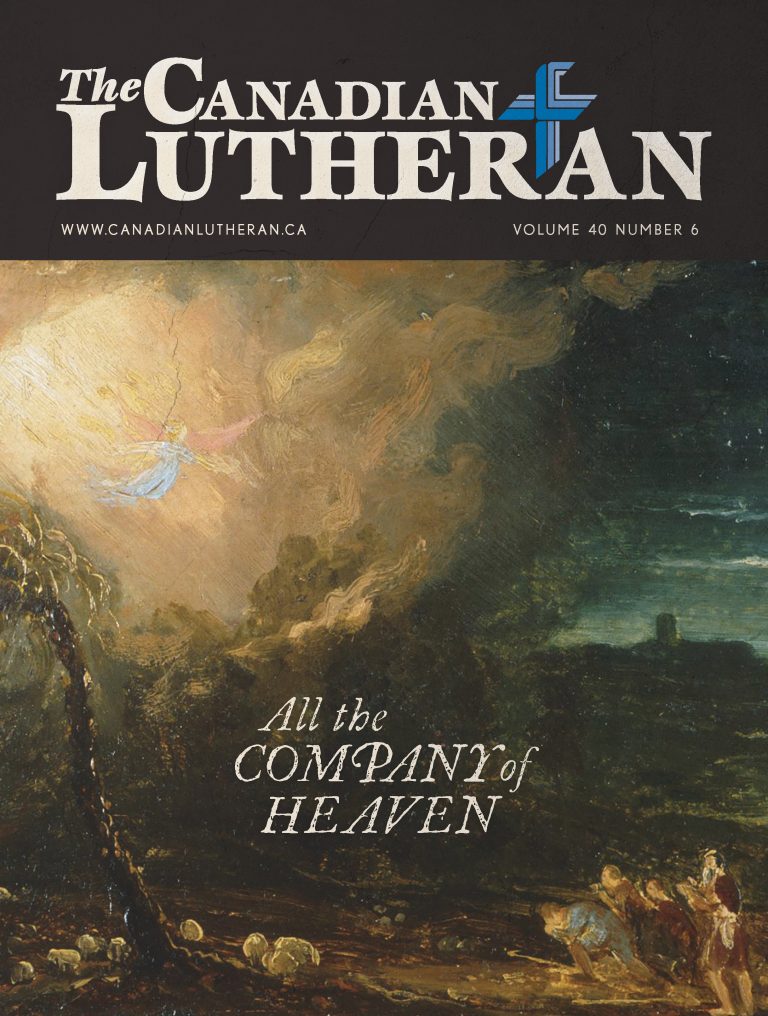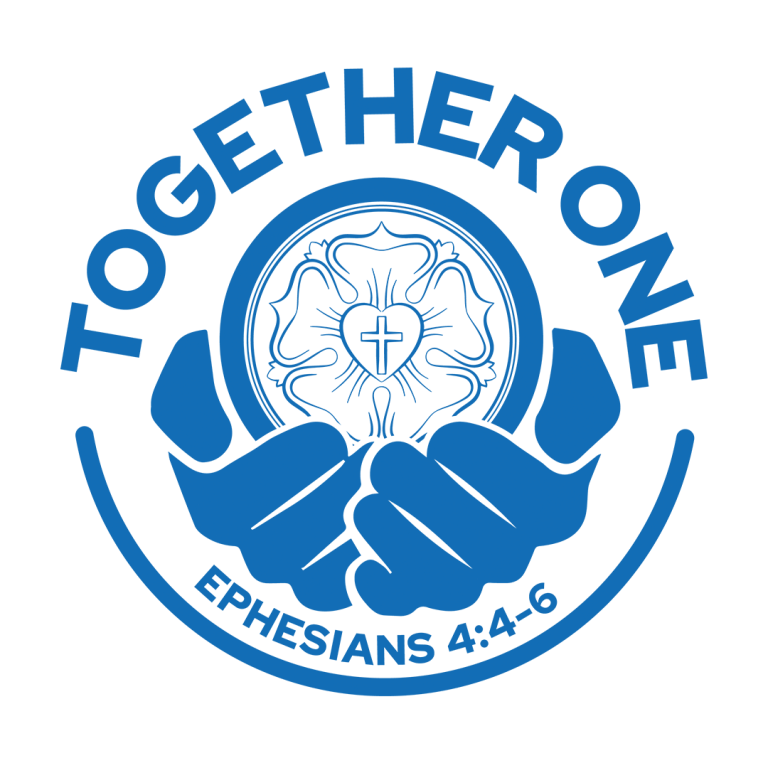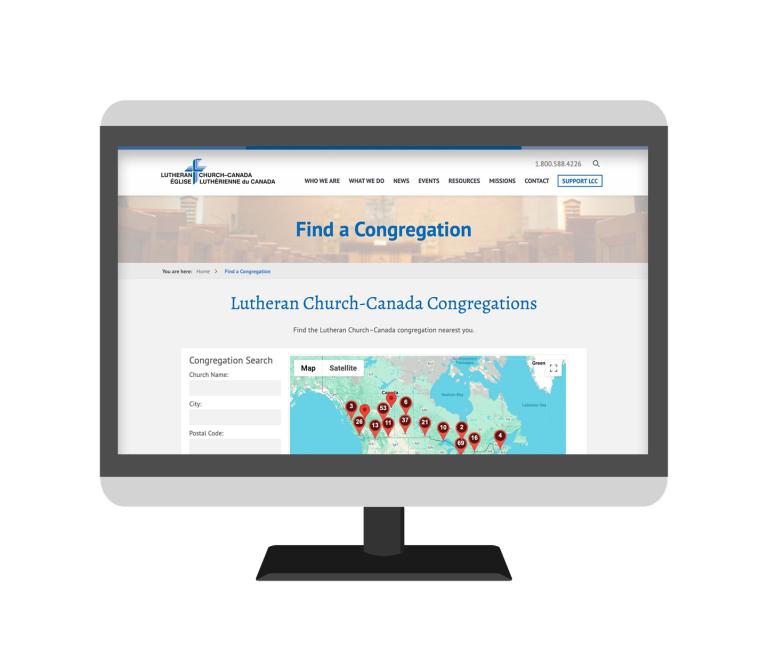The Family Altar
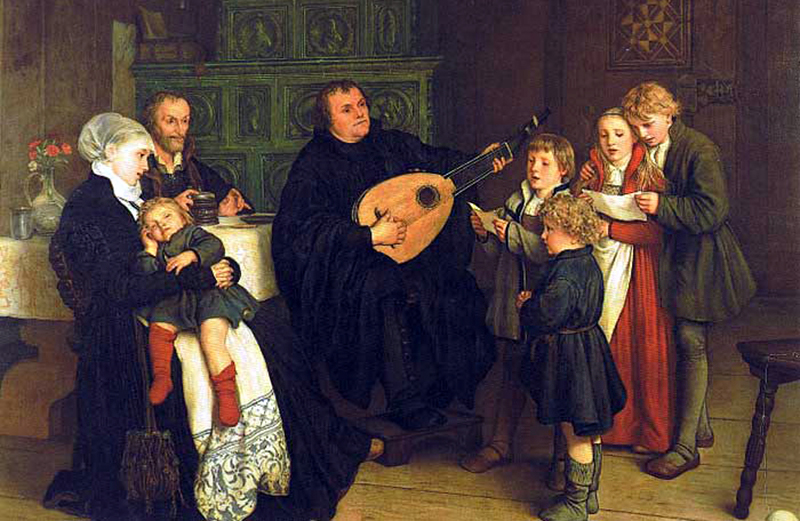
Martin Luther and his family: G.A. Spangenberg, c. 1875.
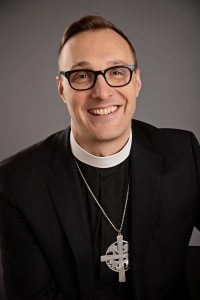
Rev. David Haberstock.
by David Haberstock
Do you have an altar in your house? At my first ever Circuit Counsellors’ meeting I discovered that Lutheran Church–Canada’s synodical bylaws require Circuit Counsellors to inquire about the “maintenance of the family altar.” Say what? Maybe you’re thinking, “I thought only pastors should/could preside at the Sacrament? Why does a home need an altar? (And how will that fit in my decorating scheme?)”
Well, let’s define this, then. What is a family altar? While the public ministry of Word and Sacrament is that special authority granted to the Church and exercised by called pastors within the Church, every home should have an altar it gathers around. After all, we talk about “hearth and home” as a way of speaking about the nurture and bonds of affection that occur in the family. The “hearth” is the fount from which the nourishment of the body comes, and the home is the place where a family is not only nourished, but protected and bound together as a unit who love each other.
Well, the “family altar” is that thing around which the family, as a microcosm of the Church, gathers in her daily prayers and reception of God’s Word. It does not have to be physical location or piece of furniture within the home. But for Christian families to flourish as Christian families, it must be present, just as God’s Word and Sacraments must be in your life in order to create and sustain faith in the faithful (Romans 10:17), for they are the means through which forgiveness of sins, life, and salvation are granted to us (see Augsburg Confession V)
For Christian families to flourish as Christian families, the family altar must be present.
I recall visiting my American grandfather as a child, and though he was an avid baseball fan, at nine o’clock every night he turned the television off, no matter what the score was. The Scriptures were opened and all in that house gathered in the living room to hear them, receive a brief devotion (usually Portals of Prayer), and pray together. The altar was not a physical one, but that living room was a place associated indelibly with the Word of God and the gathering of God’s people.
When I was growing up, my family would pray the common table prayer before supper, eat the meal together, and were not dismissed from the table until Scripture and a devotion were read, prayers for specific needs were offered, and a concluding “Returning Thanks” prayer based on Psalm 136:1 was prayed (à la Luther’s “Returning Thanks” instructions in the Daily Prayers section of the Small Catechism). In a sense, our table was our altar, but in reality it was our fellowship in and through the Word of God that formed the family altar.
Presently in my family, my daughter’s bedtime routine is the focus of our “family altar.” Writing this column encourages me to do more as a family, but after bedtime stories (currently the Harry Potter series, next Anne of Green Gables), we have a devotion and prayers. When I am away for work and am not present to read my daughter her bedtime story, we try to keep this routine using FaceTime, and after the story, we call my wife in to have bedtime prayers together. That has been a greatly sustaining practice for me when away from my family.
Interestingly, through social media I have seen a revival amongst many young Lutherans of not only maintaining and expanding such devotional practices, but often centering them around a spot in their home that may include a small table with candles, a Bible, a hymnal, prayer books, a crucifix or other images of Jesus, and a prie-dieu (a prayer kneeler)—some even love a bit of incense! In this crazy day of digital everything where our lives are increasingly lived in cyberspace, or in our heads, a dedicated physical space and time carved out for focussing on the Lord, receiving His Word, and turning to Him in prayer is an incredible help.
I encourage you, dear Christian, to maintain a “family altar” in one way or another. For we live and move and have our being as Christians and Christian families through the Word of God which we share with one another, and such practices will inevitably lead to an increased desire to join together to receive the Sacrament of the Altar from our Lord’s table with the larger family of God.
———————
Rev. David Haberstock is Regional Pastor for Lutheran Church–Canada’s Central Region.


